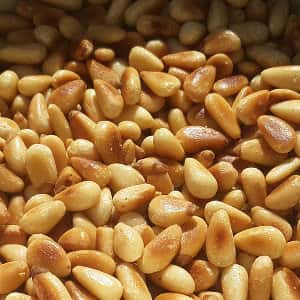
Q. I am searching for a remedy for “pine mouth syndrome.” Two days ago my husband and I made pesto and munched some fresh pine nuts. It turns out they were from China. Now we each have a bitter metallic taste in our mouths that won’t go away.
I did some research and came across information about the syndrome, but I could find no fixes for this miserable phenomenon. Can you help?
A. The nasty metallic taste that results from eating certain pine nuts has been dubbed “pine mouth syndrome.” It was first described a decade ago (European Journal of Emergency Medicine, March, 2001). The taste disappears after several days, and time is the only “fix” we could find.
There are at least 20 species of pine trees that make seeds that are harvested for human consumption. The pine nuts used in the Italian pasta condiment called pesto traditionally come from the stone pine, Pinus pinea. Seeds from Asian pines are often less expensive; the seeds from one particular Chinese species, Chinese white pine or Pinus armandii, appear to be responsible for pine mouth syndrome (Journal of Toxicology, in press).
Most pine nuts available in the US come from China. The offending seeds are often smaller and rounder than other pine nuts. Although pine mouth is unpleasant, it is temporary and does not seem to be dangerous.

